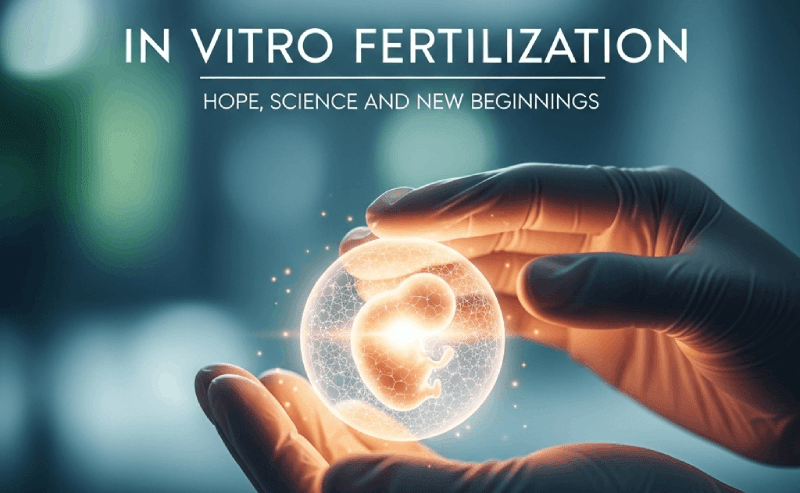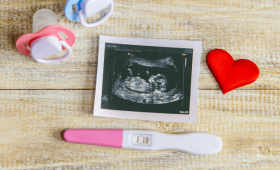In vitro fertilization (IVF) is a type of assisted reproductive technology (ART) used to help people with fertility issues conceive a child. The process involves fertilizing an egg with sperm outside the body in a laboratory setting. The term “in vitro” is Latin for “in glass,” referring to the glass dishes or tubes where the fertilization process occurs.
The IVF Process
IVF is a multi-step procedure that typically takes several weeks to complete. The process involves the following key stages:
- Ovarian Stimulation: The woman is given fertility drugs to stimulate her ovaries to produce multiple eggs. This is monitored through regular ultrasound exams and blood tests.
- Egg Retrieval: Once the eggs are mature, they’re retrieved from the ovaries using a minor surgical procedure called transvaginal ultrasound aspiration. A thin needle is guided through the vagina into the follicles to collect the eggs.
- Fertilization: The retrieved eggs are combined with sperm in a laboratory dish. This can happen through natural fertilization, where the sperm and eggs are left to fertilize on their own, or through Intracytoplasmic Sperm Injection (ICSI), where a single sperm is injected directly into each egg.
- Embryo Culture: The fertilized eggs (now called embryos) are monitored in the lab for several days as they grow and divide.
- Embryo Transfer: One or more of the best-quality embryos are transferred into the woman’s uterus using a thin catheter.
- Pregnancy Test: After about two weeks, a pregnancy test is done to see if the embryo has implanted in the uterine wall and resulted in a pregnancy.
Who Can Benefit from IVF?
IVF is a viable option for a variety of individuals and couples facing infertility. Common reasons for pursuing IVF include:
- Blocked or damaged fallopian tubes that prevent the egg from traveling to the uterus.
- Male infertility due to low sperm count, poor sperm motility, or other issues.
- Ovulation disorders, such as polycystic ovary syndrome (PCOS), that affect a woman’s ability to produce eggs.
- Endometriosis, a condition where tissue similar to the uterine lining grows outside the uterus.
- Unexplained infertility, when the cause of infertility can’t be identified.
- Genetic disorders that a parent doesn’t want to pass on to a child.
- Age-related fertility decline, particularly for women over 35.
Age and Success Rates
A woman’s age is a significant factor in the success of IVF, as egg quality and quantity decrease with age. The chances of a successful live birth are higher for younger women:
- Women under 35: Have the highest success rates.
- Women 35-40: Success rates start to decline.
- Women over 40: The chances of success decrease significantly, and doctors may recommend using donor eggs.
Gender Selection in IVF
Gender selection, also known as sex selection, is a process used during IVF to choose the sex of the baby before the embryo is transferred to the uterus. This is typically done for family balancing or to prevent the transmission of sex-linked genetic diseases. The process uses Preimplantation Genetic Diagnosis (PGD) or Preimplantation Genetic Screening (PGS), which allows doctors to identify the sex of the embryo.
The IVF Process
IVF is a multi-step procedure that typically takes several weeks to complete. The process involves the following key stages:
- Ovarian Stimulation: The woman is given fertility drugs to stimulate her ovaries to produce multiple eggs. This is monitored through regular ultrasound exams and blood tests.
- Egg Retrieval: Once the eggs are mature, they’re retrieved from the ovaries using a minor surgical procedure called transvaginal ultrasound aspiration. A thin needle is guided through the vagina into the follicles to collect the eggs.
- Fertilization: The retrieved eggs are combined with sperm in a laboratory dish. This can happen through natural fertilization, where the sperm and eggs are left to fertilize on their own, or through Intracytoplasmic Sperm Injection (ICSI), where a single sperm is injected directly into each egg.
- Embryo Culture: The fertilized eggs (now called embryos) are monitored in the lab for several days as they grow and divide.
- Embryo Transfer: One or more of the best-quality embryos are transferred into the woman’s uterus using a thin catheter.
- Pregnancy Test: After about two weeks, a pregnancy test is done to see if the embryo has implanted in the uterine wall and resulted in a pregnancy.
Who Can Benefit from IVF?
IVF is a viable option for a variety of individuals and couples facing infertility. Common reasons for pursuing IVF include:
- Blocked or damaged fallopian tubes that prevent the egg from traveling to the uterus.
- Male infertility due to low sperm count, poor sperm motility, or other issues.
- Ovulation disorders, such as polycystic ovary syndrome (PCOS), that affect a woman’s ability to produce eggs.
- Endometriosis, a condition where tissue similar to the uterine lining grows outside the uterus.
- Unexplained infertility, when the cause of infertility can’t be identified.
- Genetic disorders that a parent doesn’t want to pass on to a child.
- Age-related fertility decline, particularly for women over 35.
Age and Success Rates
A woman’s age is a significant factor in the success of IVF, as egg quality and quantity decrease with age. The chances of a successful live birth are higher for younger women:
- Women under 35: Have the highest success rates.
- Women 35-40: Success rates start to decline.
- Women over 40: The chances of success decrease significantly, and doctors may recommend using donor eggs.
Gender Selection in IVF
Gender selection, also known as sex selection, is a process used during IVF to choose the sex of the baby before the embryo is transferred to the uterus. This is typically done for family balancing or to prevent the transmission of sex-linked genetic diseases. The process uses Preimplantation Genetic Diagnosis (PGD) or Preimplantation Genetic Screening (PGS), which allows doctors to identify the sex of the embryo.
As Cure Holiday, we provide high-quality and highly successful IVF and IVF with gender selection treatments.
Achieve Your Dream of Parenthood with Cure Holiday
At Cure Holiday, a leading health tourism agency in Turkey, we are dedicated to helping you realize your dream of starting a family. We offer comprehensive and highly successful In Vitro Fertilization (IVF) and IVF with Gender Selection treatments.
By bringing together state-of-the-art medical technology and a team of expert, experienced doctors, Cure Holiday delivers world-class healthcare. We walk with you through every step of your treatment journey, guaranteeing a transparent, reliable, and comfortable experience from start to finish.
Why Choose Cure Holiday?
- High Success Rates: Thanks to our cutting-edge laboratories and expert team, we achieve global-standard success rates.
- Personalized Treatment Plans: Every patient’s situation is unique. We create a personalized treatment plan that is most suitable and effective for you.
- Comprehensive Gender Selection: For couples who desire family balancing, we offer reliable and legal gender selection services.
- Comfortable and Reliable Process: We handle all your needs during your treatment, including accommodation, transfers, and more. You can focus solely on the success of your treatment.
- Cost-Effective Advantages: We provide high-quality healthcare services at a much more affordable cost compared to Europe and the USA.
Look to the future with hope with Cure Holiday. Don’t put off your dream of starting a family. Contact us today to learn more about our tailored treatment options and to begin this journey with us.



